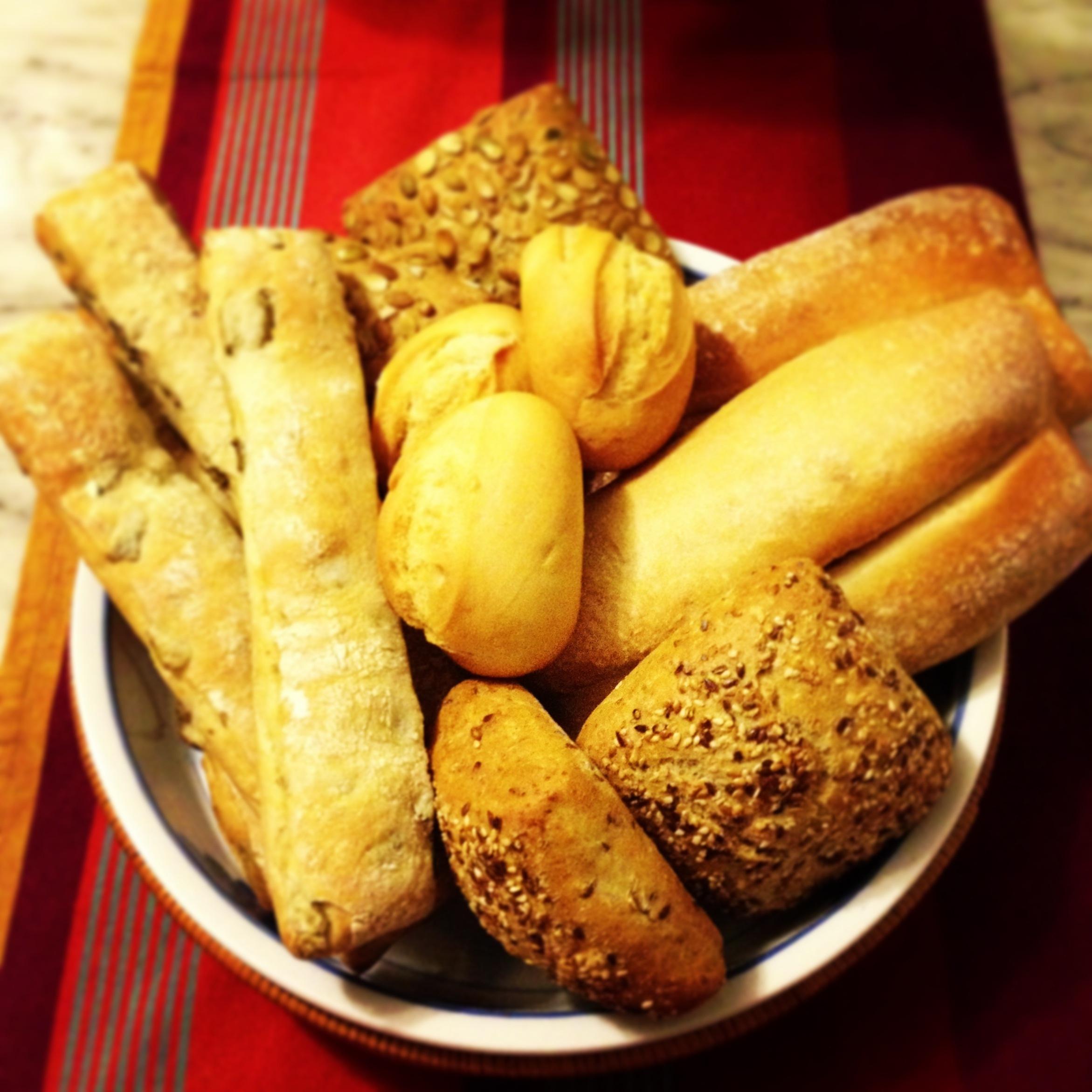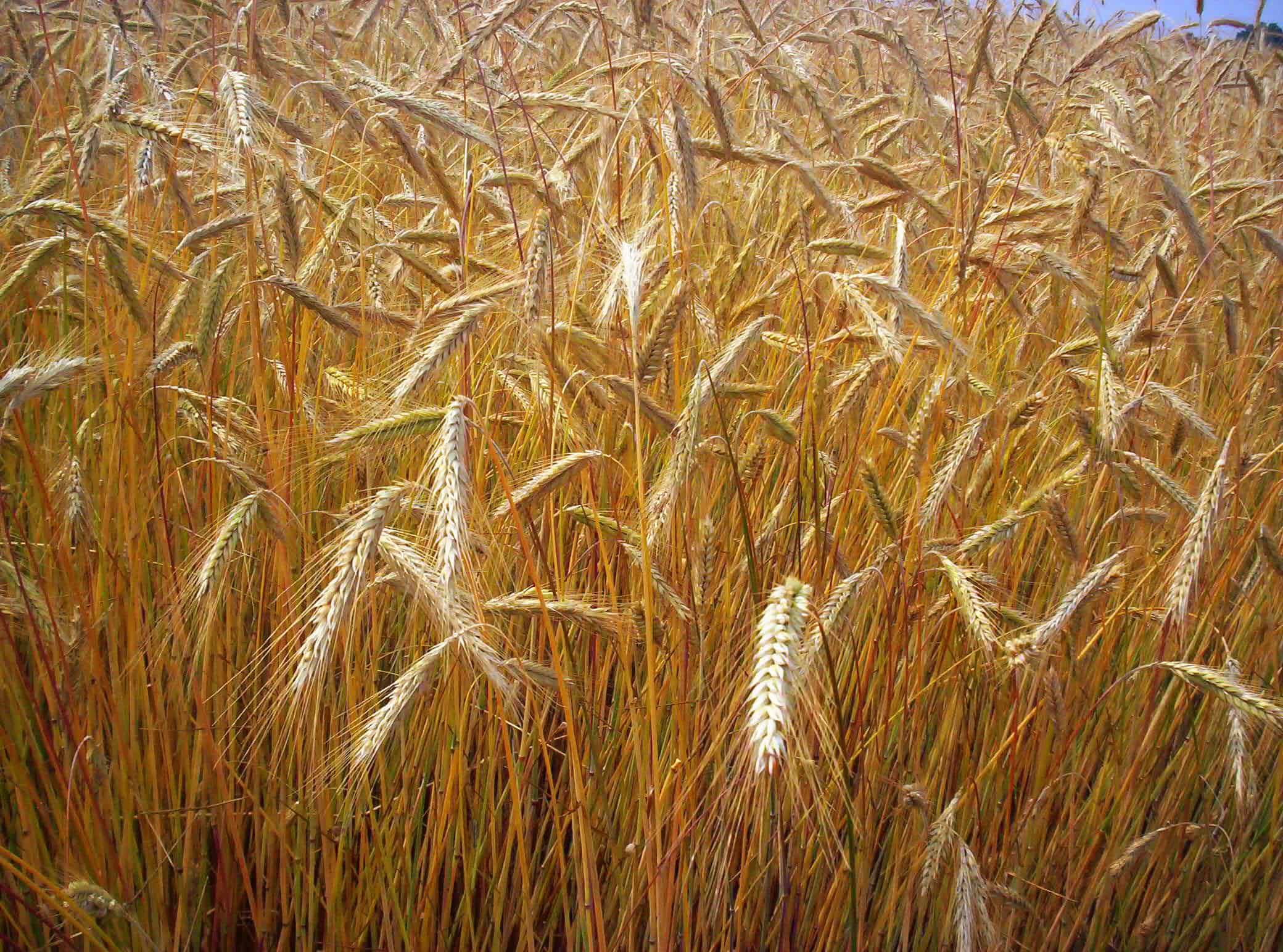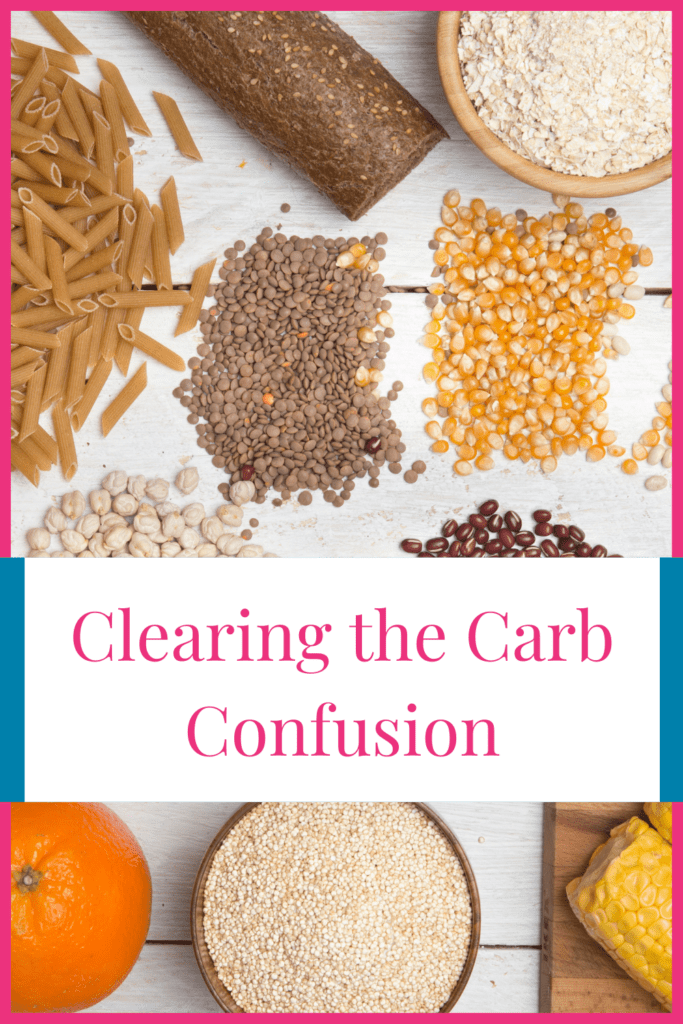 There is a lot of confusion about carbs these days. Carbs are a widely debated topic. Some say they are evil, others say it’s a fad. I believe it was the Atkins diet that sparked the initial carbohydrate confusion. Many people are still wondering if carbs hurt or help us. Are they making us fat or is that too just another fad diet myth? Well the answer to that question is both. It all depends on which type of carbs we are eating and just as importantly how much.
There is a lot of confusion about carbs these days. Carbs are a widely debated topic. Some say they are evil, others say it’s a fad. I believe it was the Atkins diet that sparked the initial carbohydrate confusion. Many people are still wondering if carbs hurt or help us. Are they making us fat or is that too just another fad diet myth? Well the answer to that question is both. It all depends on which type of carbs we are eating and just as importantly how much.
Clearing the carbohydrate confusion became important to me when my doctor thought that the adrenal and blood sugar issues that I was suffering were partially related to my overconsumption of carbs. It has only been in recent years that I have really curbed my carb addiction. In fact, I used to be a carb addict which is unfortunately quite common among vegetarians. I figured since I was eating healthy carbs like whole grain cereals, breads and pastas that I was safe from the havoc that white carbs unleash on the body.
My vegetarianism started when I was about nine or ten. I am grateful that my mom always supported me in my choice to become a vegetarian and that she tried to ensure that we ate a healthy diet. She made almost all of our meals from scratch. Unfortunately, vegetarianism was new to both my mom and I (and at that time new to most of society). I realise now both mom and I weren’t aware of what I needed to eat to ensure I was getting all the necessary nutrients. We both thought I was substituting the nutrients I wouldn’t be getting from meat with other foods, but when I look back now there were some serious flaws.
Adrenal issues and insulin resistance are more common among overzealous vegetarians who haven’t got all the facts. Like many vegetarians I was constantly loading up on high carbohydrate meals as a source of energy as well as sugary treats. I was definitely not getting the necessary protein, fat and other nutrients and I was instead eating countless bread products and heaps of pasta.
Diabetes and blood sugar issues are an epidemic in Western civilization because of our high consumption of not just sugar, but carbohydrates in general. All carbohydrates are considered sugar by your body and so your body has to pull vitamins and minerals from your body in order to metabolize the sugar. However, not all carbohydrates are bad. The carbohydrates that are in a sweet potato or quinoa come in a nice little package with the necessary vitamins and minerals to metabolize the sugar that is in the potato or bowl of quinoa. Even still, eating large quantities of any complex carbs like the healthy ones such as whole grains and even quinoa still translates into sugar in your body and you don’t want that in excess.
What is important to know is that while vegetables are complex carbohydrates they are not metabolized the same as complex carbs like whole grains. Our body does better with the carbohydrates in vegetables as opposed to grains because it actually decreases insulin levels. Because grains do the opposite and increase your insulin levels as well as affect your body’s ability to burn fat, they need to be eaten in moderation.
So are whole grains bad? No. But first you need to make sure that it is in fact whole grain and not mostly refined wheat and grain mixed with a small portion of whole grains. A lot of the breads and cereals on the shelves at supermarkets are being marketed as such. They are labeled as whole grain when they are in fact mostly full of refined grain. Talk about semantics.
When it comes to whole grains many of us are over consuming grains by a long shot and we are doing it on a daily basis. We start our mornings off with a bagel or a bowl cereal, snack on a granola bar at break, eat pasta or a sandwich for lunch and then eat either spaghetti or a meat and potatoes combo with bread butter for dinner. We might then snack on some carb comfort food in the evening. We were never meant to eat carbs in this quantity and our bodies are telling us so.
 Metabolic syndrome occurs in 20-30% of individuals in the West and its detrimental health effects are a result of our high consumption of complex carbohydrates. Insulin still needs to be secreted to process the sugar in whole grains and insulin is not only the main problem with metabolic syndrome, but also for diabetes, obesity, high blood pressure, high cholesterol, bowel issues, acne, hormonal imbalances as well as creating inflammation in the body. Inflammation equals pain (think arthritis, fibromyalgia etc.) My own adrenal issues are significantly exasperated the minute I over consume grains.
Metabolic syndrome occurs in 20-30% of individuals in the West and its detrimental health effects are a result of our high consumption of complex carbohydrates. Insulin still needs to be secreted to process the sugar in whole grains and insulin is not only the main problem with metabolic syndrome, but also for diabetes, obesity, high blood pressure, high cholesterol, bowel issues, acne, hormonal imbalances as well as creating inflammation in the body. Inflammation equals pain (think arthritis, fibromyalgia etc.) My own adrenal issues are significantly exasperated the minute I over consume grains.
The problem is that many of us have been led to believe that grains are necessary and that we need to eat a lot of them. Health and nutrition experts are constantly trying to have the Canadian Food Guide changed from its significantly high daily grain and dairy intake. According to the Canadian Food Guide a woman of thirty-five requires 6-7 grain products a day. It has been common knowledge for quite some time that following the dietary recommendations of the Canadian Food Guide leads to obesity. Unfortunately, Canada’s economic system is highly dependent on the success of the wheat and dairy industry. Telling everyone that they can get adequate carbohydrates from fruits and vegetables and that we are killing ourselves with over consumption of grains comes with some serious ramifications for our country’s economy.
Again I am not saying that all grains are bad and I am not suggesting one should follow a fad diet that eliminates all grains. However, they should be eaten sparingly to prevent obesity and the health problems associated with continuously fluctuating blood sugar levels. For most of us, vegetables should make up more of our plate than anything else, yet for most of us bread, bagels, oatmeal, pasta, rice, cakes, cookies, crackers and then meat take centre stage. As a result our bodies are constantly being bombarded by sugar in all forms and we are left with overburdened livers and adrenals and a pancreas that just can’t keep up. Below is a breakdown of the three types of carbohydrates.
1) Simple Carbohydrates cause a quick insulin spike which quickly drops leaving you craving more sugars. Simple carbohydrates are made of 1-2 sugar molecules. Examples are:
- White sugar
- Milk
- Yoghurt
- Honey
- Molasses
- Cakes
- Candy
- Soft drinks
- Fruit juice
- Jams
- Corn syrup
- Fruit
Not all simple carbohydrates are bad such as yoghurt and fruit. However, they do need to be eaten in moderation.
2) Starchy Complex Carbohydrates cause a more gradual increase in insulin levels which is why you feel full longer. Examples are:
- Pastas (whole wheat or whole grain as well)
- Grains
- Wheat
- Potatoes
- Oatmeal
- Millet
- Sweet corn
- Brown rice
- Breads
- Beans
- Lentils
Again most of these are not unhealthy but they need to be eaten in moderation. Remember that refined carbs cause more rapid insulin spikes and thus blood sugar fluctuations in the body. Definitely avoid eating a serving of complex carbs (refined or not) at every meal since either way they do cause insulin spikes.
3) Fibrous Complex Carbohydrates only slightly affect insulin levels. Examples of these are:
- Asparagus
- Zucchini
- Broccoli
- Kale
- Carrots
- Celery
- Cucumber
- Cabbage
- Cauliflower
- Lettuce
- All non-starchy vegetables



2 thoughts on “Clearing the Carb Confusion”
Oh my goodness! Incredible article dude! Thank you, However I am encountering
issues with your RSS. I don’t understand why I can’t join it.
Is there anyone else getting identical RSS issues?
Anybody who knows the solution will you kindly respond?
Thanx!!
I am glad you found the article informative. I didn’t have an RSS widget. I added one and hoping it works. WordPress is still new to me. Let me know 🙂